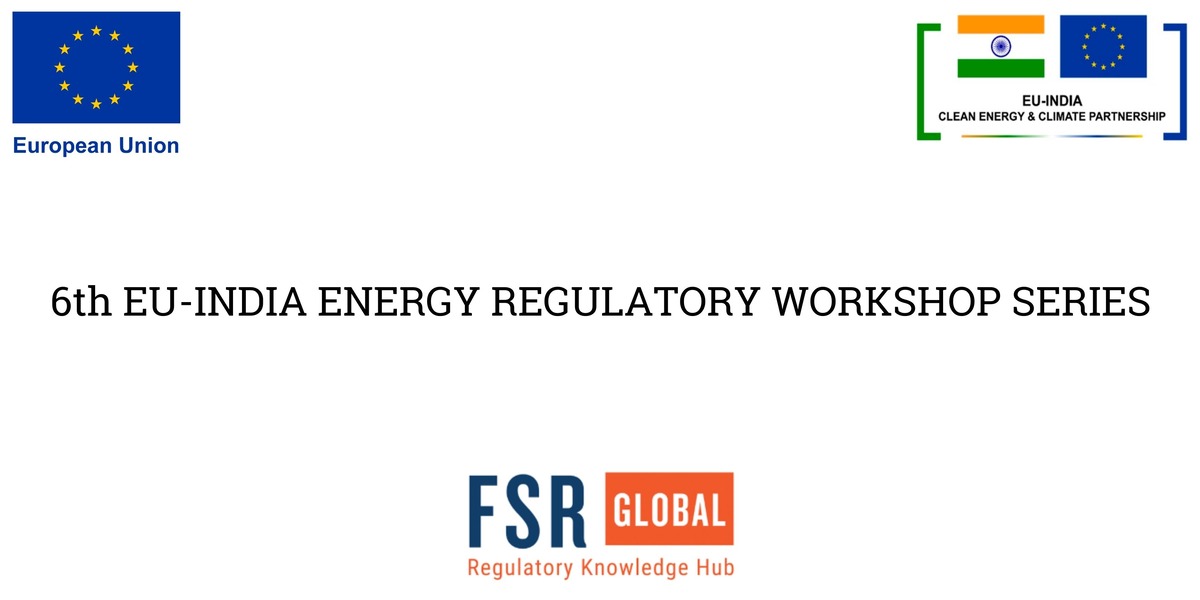EU-India Regulatory Workshop Series
Resource Adequacy
19 February 2024 | 14:00-15:30 IST
To enable clean energy transition of the India power sector the country has been taking many key measures right from setting ambitious targets in terms of renewable energy generation capacity, new market design regulations, network planning both for national and trade beyond borders.
To facilitate discussions, the EU-India Clean Energy Climate Partnership (EU-India CECP) has been conducting the ‘EU-India Regulatory Workshop Series’ for the last 6 years in collaboration with FSR Global. In its 6th edition, a series of in-person and online events are being conducted on concurrent topics for the year 2023-24.
The upcoming debate is an online event on the topic of ‘Resource Adequacy’
With the increasing share of renewable energy (RE) sources, particularly in the electricity sector and the adoption of cleaner technologies, nations are expected to decarbonize their growth in line with the principles of the Paris Agreement.
India has set ambitious climate goals for itself and recently revamped its target from achieving 175 GW of RE capacity by 2022 to 450 GW through non-fossil fuels by 2030, thereby envisioning a RE-heavy power system in the near future. However, as the grid transitions to high variable renewable energy (VRE), increasing its variability and uncertainty, safeguarding the reliability of supply remains paramount, raising questions on how can we ensure that there are enough resources to serve electricity customers as and when they need power? The current coal-reliant base load of India is expected to transition towards a renewable-generated base load. Therefore, a resource-adequate system which guarantees that sufficient generation, transmission, and storage are available to the power system so it can serve the load is a key component of future high-penetration renewable energy systems.
As the power system’s resource mix changes, resource adequacy becomes more nuanced and more complex. Deliberating upon the need and methods to attain resource adequacy in India is foundational to achieving its climate targets as well as promoting energy security and energy access while reducing energy poverty across the nation. As the Central Electric Authority recently put forward the Draft Resource Adequacy Guidelines, this discussion and its outcomes will be aptly timed for taking this relevant dialogue forward.
Agenda:
14:00-14:05 (IST) / 10:30-10:35 (CET): Welcome Address by Swetha Ravi Kumar | Executive Director, FSR Global
14:05-14:15 (IST) / 10:35-10:45 (CET): Opening Remarks by Bartosz Przywara | Counsellor, European Union Delegation to India
14:15-15:05 (IST) / 10:45-11:35 (CET): Panel Discussion Moderated by Dr. Parul Bakshi | Research Fellow, FSR Global
- Ghanshyam Prasad | Chairperson, Central Electricity Authority
- Soonee Sushil Kumar | Former CEO & Founder, POSOCO/Grid India
- Yaser Tohidi | Adequacy modelling Specialist, ENTSO-E
- Christine Brandstatt | Assistant Professor, Copenhagen School of Energy Infrastructure (CSEI)
- Swetha Ravi Kumar | Executive Director, FSR Global
15:05-15:25 (IST)/ 11:35-11:55 (CET): Q&A with the audience
15:25-15:30 (IST)/ 11:55-12:00 (CET): Closing Remarks by Dr. Parul Bakshi | Research Fellow, FSR Global
VENUE
Online Event
CONTACT
secretariat@fsrglobal.org

